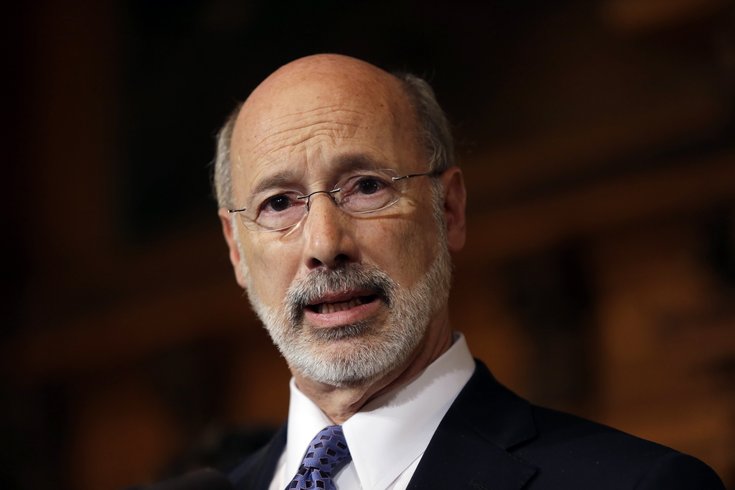
June 30, 2017
 Matt Rourke/AP
Matt Rourke/AP
Pennsylvania Gov. Tom Wolf speaks with members of the media Wednesday, Oct. 7, 2015, at the state Capitol in Harrisburg, Pennsylvania.
Behind Gov. Tom Wolf, Pennsylvania on Friday refused a request from the Trump Administration to turn over publicly available voter lists.
The recently formed Presidential Advisory Commission on Election Integrity, which the White House said will look into the possibility of voter fraud, had sent a letter to all 50 states requesting publicly available data from their voting rolls, which could include birth dates, partial social security numbers and other information.
Questioning the commission's intentions, Wolf penned a scathing response with a letter of his own, which he shared Friday on Twitter.
"I have grave concerns your request is a mere pretense for pursuing restrictions on the fundamental right to vote," Wolf wrote to the commission's vice chairman, Kansas Secretary of State Kris Kobach. "I have serious reservations about the true intentions of this effort in light of the false statements this administration has made regarding voting integrity."
Here's my full letter to the Trump administration's Kris Kobach denying his request for personal information of every registered PA voter. pic.twitter.com/ZKo8yqC11f
— Governor Tom Wolf (@GovernorTomWolf) June 30, 2017
Wolf pointed out that, without evidence, then-Presidential Candidate Donald Trump "repeatedly and falsely suggested" that widespread voter fraud exists in Pennsylvania, particularly in cities. A few weeks after he was elected president last November, Trump claimed on Twitter that "millions" had voted illegally for Hillary Clinton, his Democratic opponent on the ballot.
"These attacks on our most important democratic institution – the right to vote – remain unproven and lack even a scintilla of support," Wolf wrote.
Wolf, a Democrat, is among dozens of state leaders who pushed back against the commission's request.
Although studies have claimed voter fraud in American elections is a nonexistent problem, Kobach has advocated for tougher voting rules to combat it. A decade ago, Kobach pioneered a national cross-referencing system for states to make sure people weren't registered to vote in more than one state.
But critics of the system say it is too prone to flagging legitimate voters.
And in his note to Kobach, Wolf took another jab, saying the "crosscheck data was riddled with errors and inaccurate. Even so, the program discovered absolutely no double voting within the commonwealth."
Wolf did advise Kobach that, like any citizen, he is welcome to purchase the publicly available voter file from Pennsylvania's Department of State.
It can be bought on the state's website for $20, but state law prevents it from being posted online or being used for commercial purposes, Wolf said.